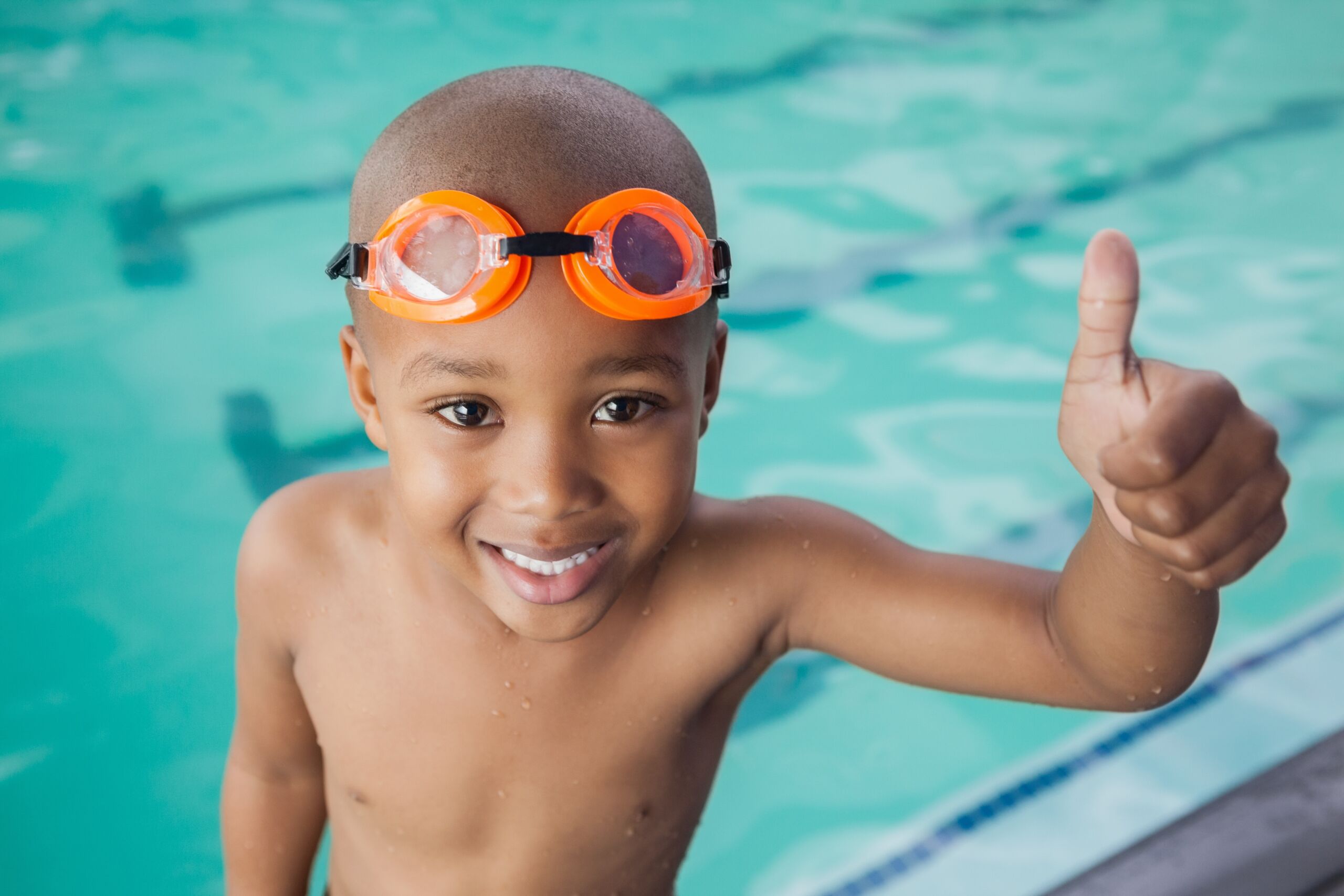Blog

Pediatric Physical Therapists Say Swimming Has Many Key Benefits for Kids
For scorching summer days, nothing compares to a splash in a cool pool – and Florida has plenty (1.1 million just in private residences alone, according to Florida State University data). For children with special needs and developmental delays, Fort Myers physical therapists know swimming has benefits far beyond simply tempering the heat.
The unique properties of water – the buoyancy, the resistance and all-encompassing nature – are proven to help improve muscle tone and overall strength, balance, posture. coordination, flexibility, motor planning, gross motor skills and sensory regulation.
In fact, physical therapists have developed an entire branch of treatment, known as aquatic therapy, which is know to be especially effective with younger clientele. Physical therapy can be hard work, tough on the joints and muscles. Working in the water serves as a sort of cushion, reducing discomfort and pain and making children less reluctant to fully engage. Also, it’s just fun to be in the water! Although FOCUS Fort Myers does not currently offer aquatic therapy, our physical therapists can offer parents and caregivers tailored exercise ideas to practice with their kids while playing in the pool. (Bonus: They’ll be having so much fun, they won’t even realize they’re “working.”)
Advantages of Pool Exercises for Physical Therapy
Physical therapists using aquatic therapy to tackle mobility and strength issues, finding both short-term and long-term positive results.
One study published in the journal Pediatric Physical Therapy examined nearly 40 infants and toddlers with delayed mobility function and motor planning (the part of the brain that helps us figure out how to move our body, which is especially challenging for children with low muscle tone who don’t gain the same variety of movement as other kids their age). Improvements in motor planning also substantially help with balance. Some children were prescribed traditional physical therapy, while others were prescribed aquatic therapy. Researchers concluded those prescribed aquatic therapy made mobility gains faster. Ultimately, this helps them achieve independence faster, while improving their self-confidence and social skills.
It’s also shown to be helpful for children on the autism spectrum. Research published in the journal Physical & Occupational Therapy in Pediatrics sought to identify physical therapists’ perceptions of whether this unique approach was indeed helpful. In addition to substantial increase in swimming skills, they discovered children made enormous leaps in terms of muscle strength, balance touch-tolerating, attention and initiating and maintaining eye contact.
Strides were also made by children diagnosed with cerebral palsy, Down syndrome, spinal injuries, fetal alcohol syndrome and other challenges. Working in the water allows for wider ranges of movement and is also associated with less discomfort post-physical therapy session. Pretty much every child benefits from safe, engaged pool time, whether it’s with the help of trained physical therapists or an attentive parent or other loved one.
Pool Exercises Physical Therapists Recommend
While you may not have the physical therapy background, you can still initiate pool exercises with your child to help bolster strength, mobility, body awareness and sensory regulation.
Some examples you might consider practicing:
- Leg presses. If you have two adults present, one can stand holding the child at the back while the other pushes the child’s legs from the front. The child uses his or her lower body strength to “push away” from the second adult. It’s a type of repetitive motion that can help build up muscles in the legs.
- Step-ups. Using the steps at the pool’s entrance, the child, while mostly submerged, steps up and then steps down. If you have music, this can be made into an especially fun activity done to a beat (adjusting for the child’s ability). Depending on the child’s balancing ability, the adult may need to help by holding their body upright.
- Noodle bike. Have your child “ride” a noodle like a bicycle (being nearby for support if necessary), which can help strengthen leg and tummy muscles.
- Alligator walk. Have your child in shallow water practice “walking like an alligator” on all fours, which helps boost upper extremity strength.
For more ideas specific to your child’s plan of care, ask our FOCUS Fort Myers pediatric physical therapists!
FOCUS offers pediatric physical therapy in Fort Myers and throughout Southwest Florida. Call (239) 313.5049 or Contact Us online.
Additional Resources:
Clinicians’ Perceptions of the Benefits of Aquatic Therapy for Young Children with Autism, July 2009, Physical & Occupational Therapy in Pediatrics
More Blog Entries:
Physical Therapy Targets Gross Motor Delays That Spur Other Problems, April 6, 2018, Fort Myers Physical Therapists Blog

Comments are closed.